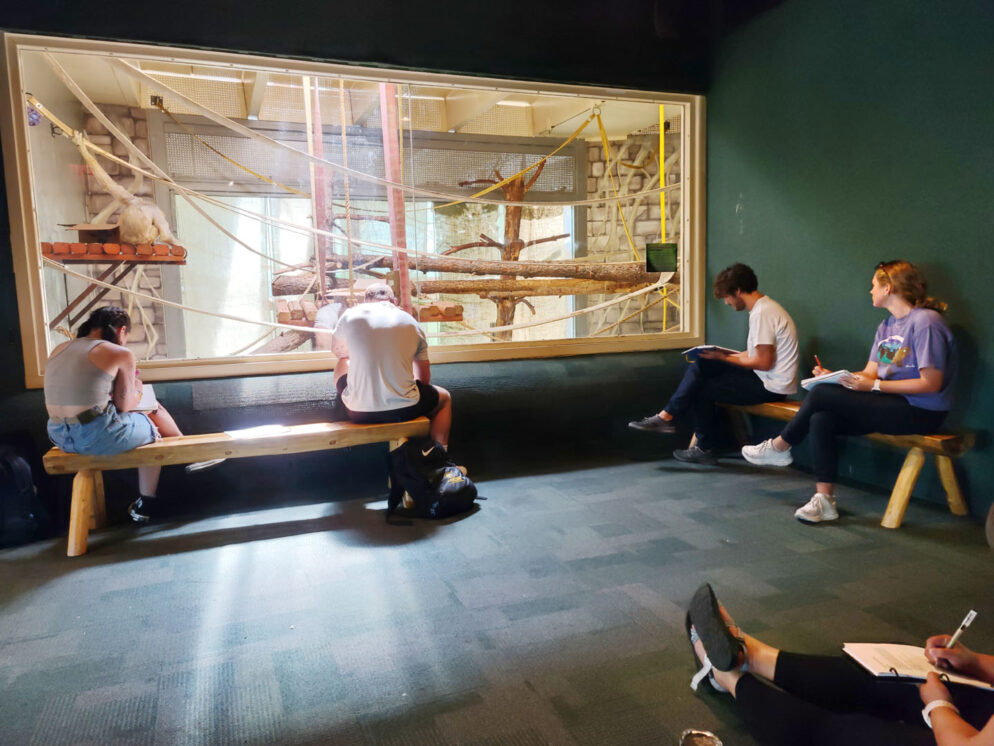A Block 1 primatology class taught students how to put together formal research proposals, ensure accurate data collection, and appreciate non-human animals, all while traveling to the Cheyenne Mountain Zoo almost 10 times. This six-person class allowed for an intimate class setting, where students not only learned the ins and outs of putting together formal research proposals but also had the chance to create one based on research questions they formed at the zoo.
Krista Fish ’97, associate professor and chair of the Anthropology Department, taught AN306 Primatology, which she took as a student at Colorado College.
During the first visits to the Cheyenne Mountain Zoo, students learned and practiced behavioral data collection methods. Students used their experience at the zoo and their readings to come up with potential research questions and hypotheses. Throughout the second week of the class, students traveled back to the zoo to pilot methods to investigate their research questions. Students were then taught how to put together a formal research proposal based on those hypotheses.
During third week, Fish and her students traveled to the zoo daily for data collection. Due to the Block Plan, the time collecting data is limited, as most behavioral data collection on wild primates takes place for months or years. Still, the students were able to experience the challenges of organizing and analyzing entire datasets, says Fish.
The Block Plan allowed the course to have an immersive field experience, which would not have been possible if students had been taking more than one class at a time.

